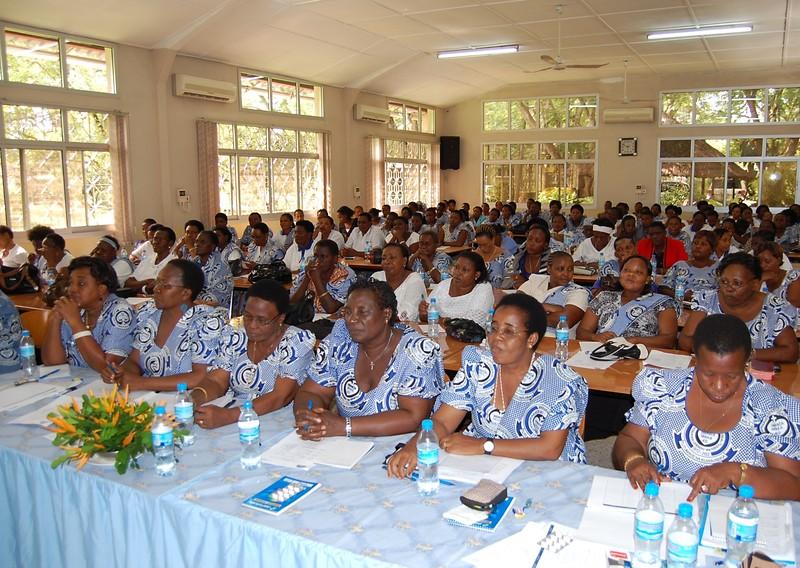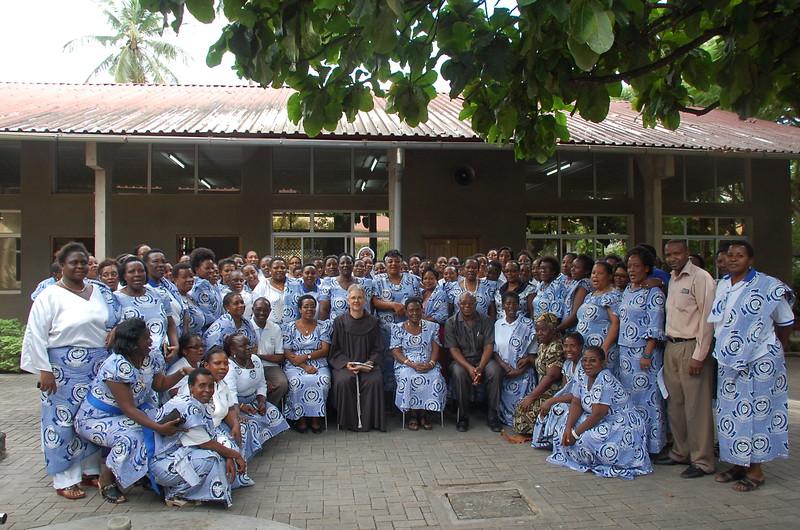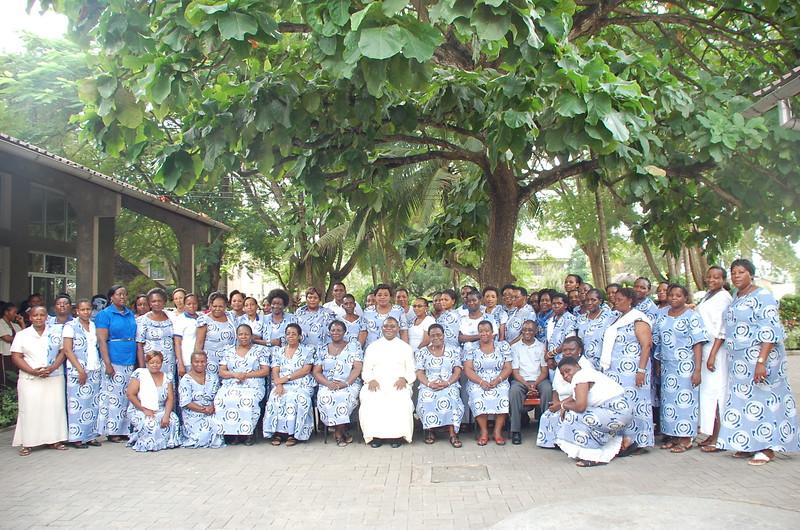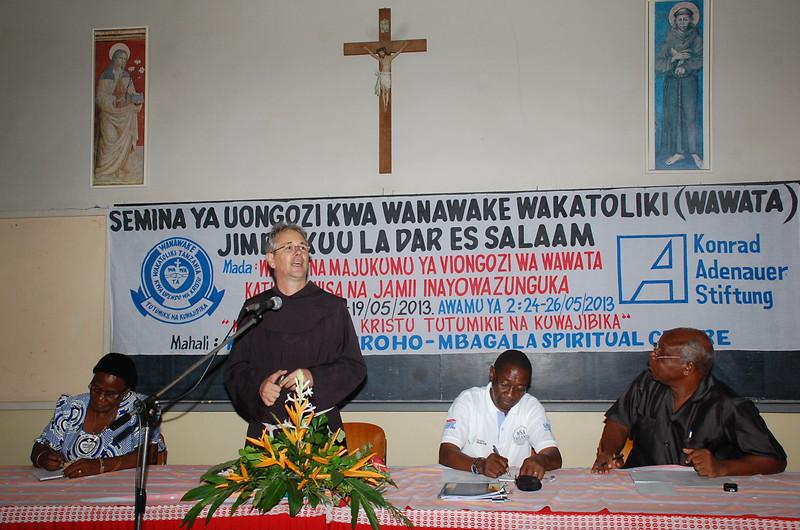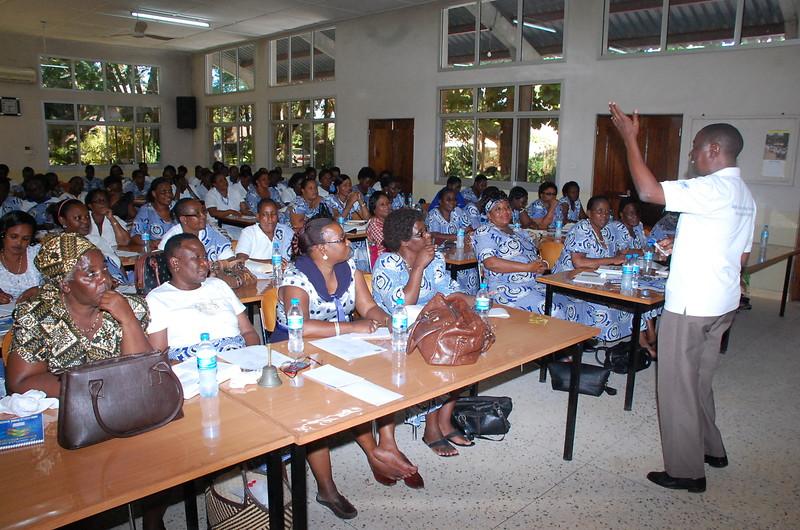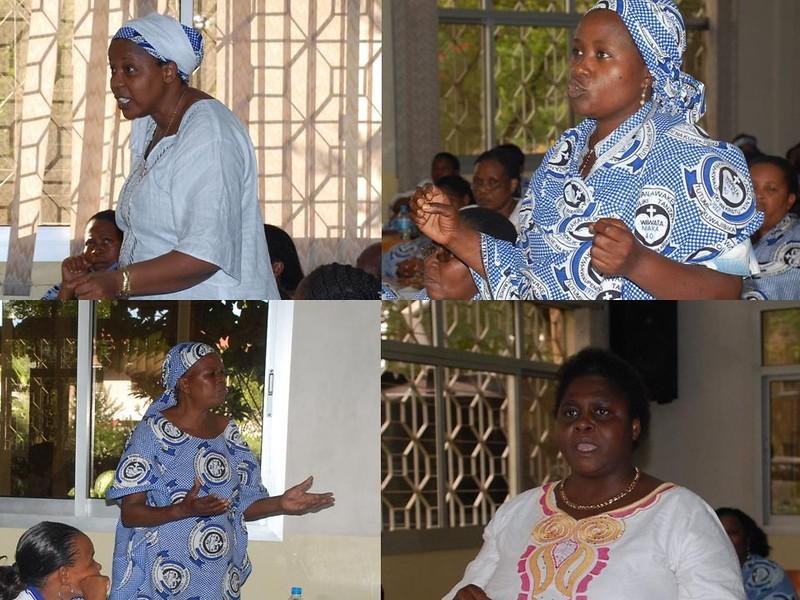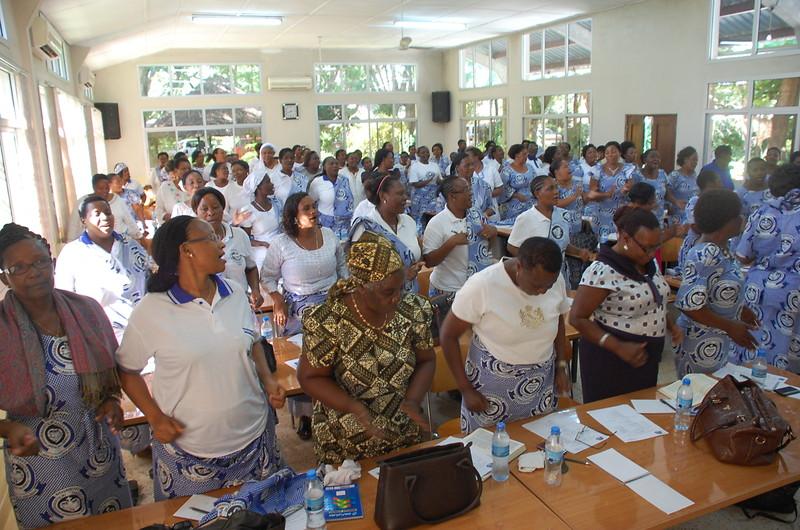Event reports
240 women of the institution "Wanawake Wakatoliki Tanzania" (WAWATA), the “Catholic Women of Tanzania”, gathered on two weekends in Dar es Salaam in order to obtain professional advice with regard to the successful management of municipal offices and to get answers to specific questions. Especially given the fact that the previous peaceful coexistence of religions in Tanzania is increasingly fraught with conflicts, strong leadership of the spiritual leader is particularly important.
Dr. Camillus Kassala, a Tanzanian intellectual and representative of the Christian Professional of Tanzania (CPT), Richard Shaba, Programme Coordinator of KAS and Erasto Ndeuka, Project Officer of KAS jointly designed and conducted the training. The workshop was subdivided in single subject areas. At the beginning the meaning of leadership was explained and what skills a leader should possess. Different types of leadership styles and techniques were discussed and the diverse and high responsibility of leading people, in particular in spiritual bodies, was pointed out.
A unit about communication made it clear that a successful and comprehensive understanding is the focal point of a peaceful and strong community. Furthermore, the participants learned how to communicate within and between different levels, so that a promising cooperation can take place. To help them handle the management and organization of meetings purposefully, another theme block included the preparation, implementation and follow-up of events.
Another workshop content was the institution WAWATA itself in which the focus was placed on the position and role of WAWATA leaders. Opportunities and challenges were collected and discussed.
At the end of each unit there was sufficient room for questions and discussion, an offer that was taken brisk and gratefully. Small "energizer" and worship songs between the blocks hold up the participants' attention. During the training the WAWATA women demonstrated once again that they are not only engaged in their communities as well as interested and open for further developments, but also how they enjoy working together and share their joy with their environment.
A similar workshop is planned in the coming weeks with Muslim women.



